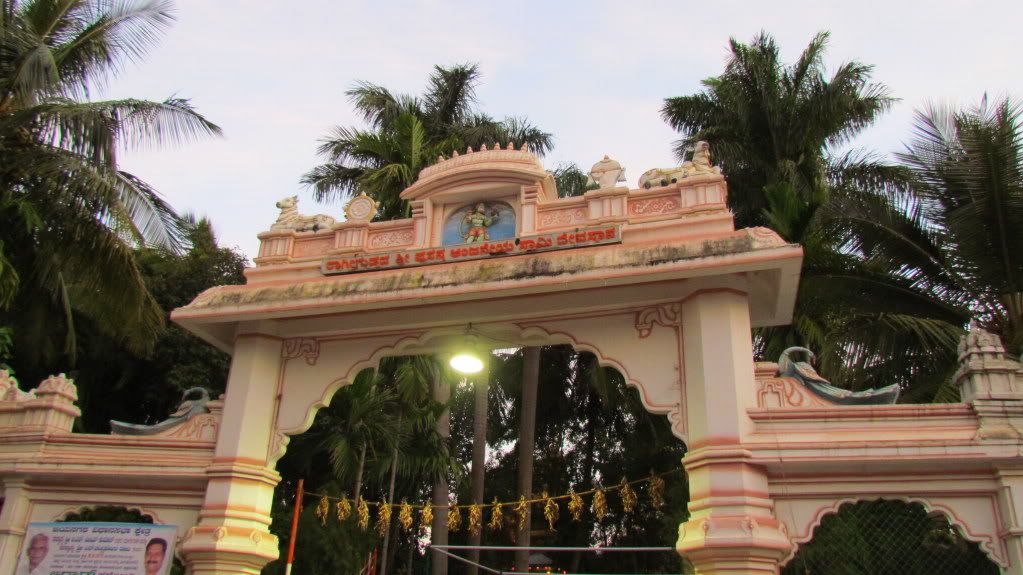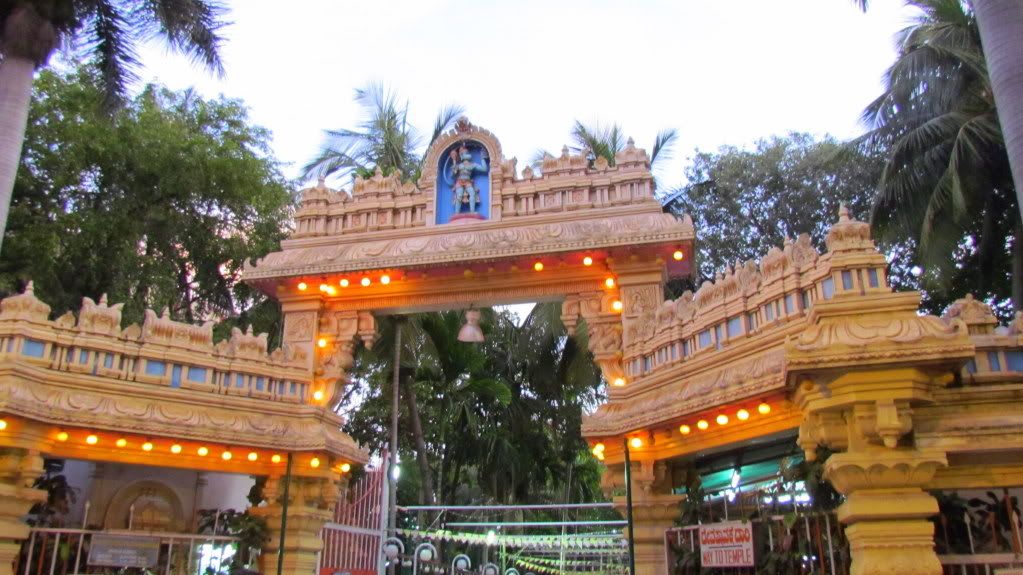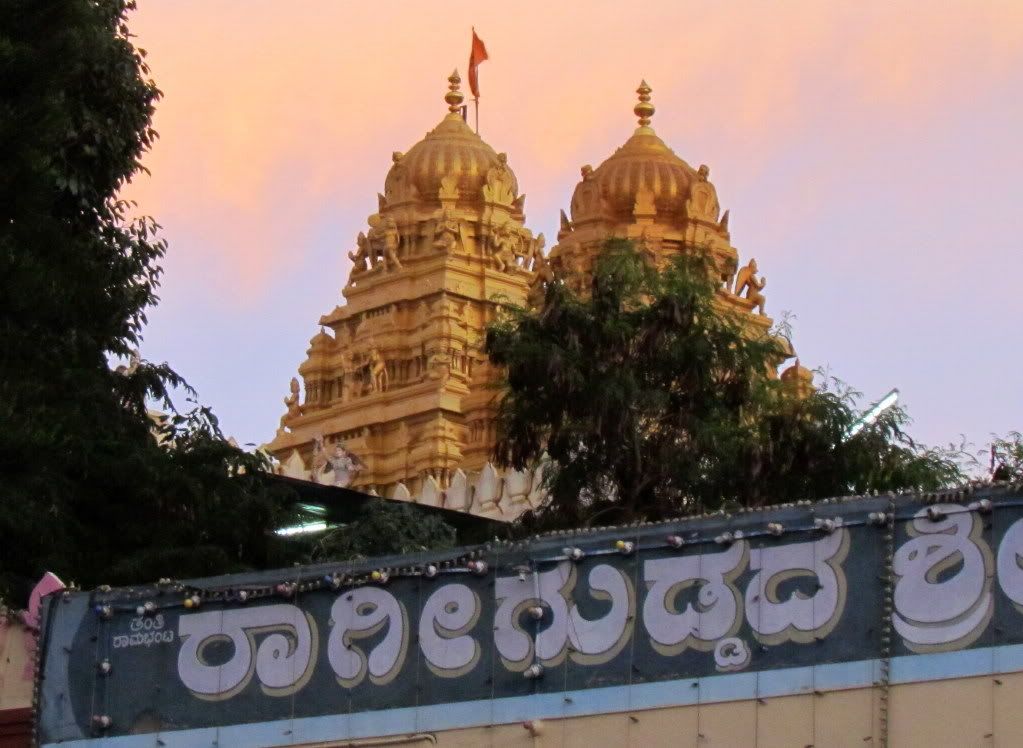The Ragigudda Anjaneya Temple
When I visited Bangalore in 1989, we stayed with some friends in Jayanagar 9th Block, and visited a small hlllock, on which stood a small idol of the monkey God, AnjanEyA (son of Anjana). His other names are Hanuman (He of the broken chin), vAyuputrA (son the Wind)…in fact his 108 names are something that I recite every day, as he is one of my favourite Gods!
Now, however, the temple has grown into a major religious and tourist attraction. In India, for many sections of society, tourism is always bound up with religion. The strict elders who may frown on a pleasure-trip will give benign encouragement to a trip to visit various temples.
When one comes from the main road, on the lane leading to the temple, the main arch greets one:
But on all but festival days, the entry to the temple complex is through this arch, a little further to the left:
In the fading light of dusk, the main gOpurams seem to glow, with the sign in Kannada that says, “belonging to Ragigudda”:
Ragi is a cereal that is special to Karnataka, and “gudda” means, small hillock. Our little hillock of Ragi is now a pretty well-known landmark in Bangalore, and draws devotees and visitors from all over.
One of the points I love in most temples in Bangalore is that everyone is allowed into the temple…not just “Hindus” or “upper castes”, as is still the custom in many other temples!
Here’s a well-known shlOkA on Anjaneya:
AnjanEyam athi pAtalAnanam kanchanAdri kamanIya vigraham pArijAtha tharu moola vAsinam bhAvayAmi bhava mAna nandanam
yathra yathra raghunAthha keerthanam thathra thathra kritha masthakAnchalim bhAshhpa vAri paripoorNa lOchanam mArutim namatha rAkshasAnthakam
Anjana’s son, very red of face, With a beautiful body like a golden mountain, Who lives in the roots of the pArijatha tree, I think of you, who are respected and loved by the world.
Wherever the name of RaghunAthA (Ram) is being sung, There, with bowed head, And with tears streaming from his eyes, is MAruti (son of the Wind)…I bow to thee, who destroys demons.



